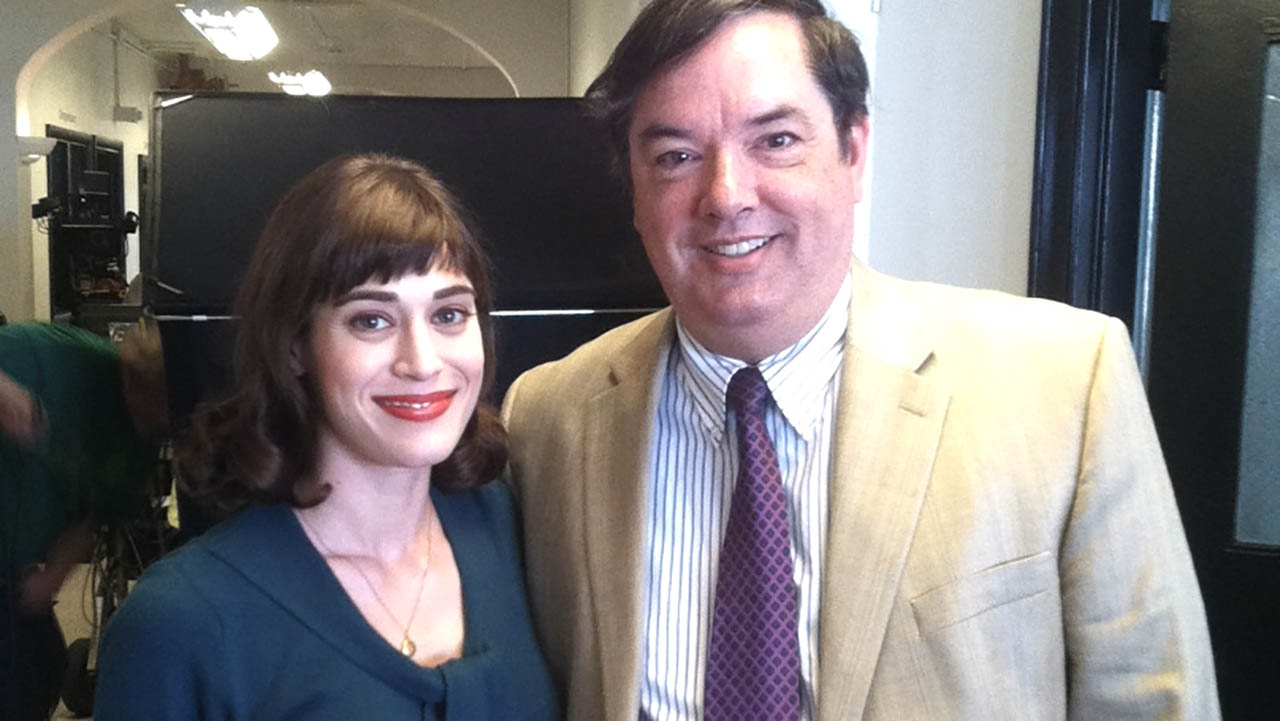On Sunday night, the television drama Masters of Sex aired its premiere on Showtime. Based on the book by ICIJ member Thomas Maier, the series chronicles the groundbreaking experiments by researchers William Masters and Virginia Johnson that upended scientific understanding of human sexuality and helped usher in the sexual revolution.
The show appears to have touched a nerve. It has received glowing initial reviews and will also be aired internationally in countries including Canada, the United Kingdom, Australia, France, Italy, Spain and Brazil.
The premiere comes four years after Maier published his biography of the pioneering researchers and signed over the screen rights to Sony Pictures. During these years, he has advised screenwriter Michelle Ashford and the show’s production team as they adapted his nonfiction book into a screenplay that explored – and creatively dramatized – the real-life relationship between the two protagonists who began as research colleagues, conducted sexual experiments with each other, eventually married, and later divorced.
We spoke about the new series with Maier, who said he was thrilled with the results. He said the show’s producers hoped it could establish a template for turning nonfiction into TV series, and offered tips on what he had learned from the process.
We’re sorry to say his advice extends only to adapting reporting for the television screen. Here are Maier’s lessons from the adaptation of Masters of Sex:
- Write strong dialogue and scenes
In a time when so many people get their news and entertainment from television, Maier emphasized the importance of including sharp dialogue and compelling detail in written journalism. Memorable scenes in print, he said, are crucial for a story to be able to translate to the screen. Maier said he tries to always tape record his interviews with key protagonists, in order to capture the precise words and small asides that will provide insight into a character or flesh out an important scene.
“Writing with an eye toward detail is now more important than ever because that [television] is how the majority of our audience receives their information,” Maier said.
- Use investigative techniques to uncover compelling details
Although Masters of Sex is different from Maier’s more traditional investigative work, he said he used many of the same techniques to research the story. For example, during an in-depth interview with Virginia Johnson, she confessed that Masters had fabricated data in a study in which he claimed to have conducted gay conversion therapy. For years the study had been held up by gay rights opponents as evidence that homosexuality could be changed voluntarily.
Maier also conducted extensive interviews with Masters and Johnson’s colleagues and compared their statements with the documents and scientific data that the researchers produced. One key discovery Maier made this way – which emerges as a key theme in the series’ first episode – is that Masters, a renowned sex and fertility expert, himself had a low sperm count but blamed his wife for their struggles to conceive. Maier learned this by interviewing a doctor, Marvin Grody, who had co-authored a 1952 journal article on infertility treatment with Masters. Grody recalled that Masters and his wife themselves participated in the experiment to try to successfully have a baby. In the article, the case study is cited only with the initials “E.M.” – Elizabeth Masters – and the data shows that the therapy was successful despite Masters’ low sperm count.
- Do your due diligence before signing over the rights
Maier certainly had TV-friendly material, but he felt strongly that any screen adaptation must reflect the nuances and deeper themes of his biography. Once he signed over the screen rights, he knew the creative process was out of his hands. “I was under no circumstances going to let my carefully crafted book in the hands of somebody who would make it anything less than the excellence I was striving for,” Maier said.
When Sony proposed screenwriter Michelle Ashford to create the new series, Maier said he carefully watched her previous work before signing an agreement. The key for him was watching an Emmy-winning episode that Ashford wrote for a 2008 television series about former US president John Adams, which depicted Adams’ relationship with his wife. He felt that her humorous touch and ability to capture a “dynamic relationship between a mature man and a mature woman with lots of sparkle” while simultaneously portraying major historical events made her the right person to adapt Masters of Sex.
- Accept that it’s no longer your baby
Once the rights had been signed, Maier accepted that the process was out of his hands. Although he closely advised Ashford and key producers – he estimated that he has written 15-20 memos offering suggestions, background information and feedback – he recognizes that the show is their creation and not his own. He doesn’t mind that the series has added characters and plot lines that are not included in his book, which he described as a “well” rather than a “straightjacket” for the production team.
“I’ve always said, ‘Make this your baby,’” Maier said. “What I had to say was in the book.”
- Learn the art of collaboration
Investigative journalism is often a solitary pursuit, and Maier said that he was used to relying on his own research and vision for projects varying from investigations to biographies. Adapting a show for television, however, was a collaborative process that not only required relinquishing control but also working closely with others. Maier said that one of the most important things he has learned from that process was the “art of collaboration,” and an understanding of the exceptional outcomes that can result from trusting others and working as a part of a team.
